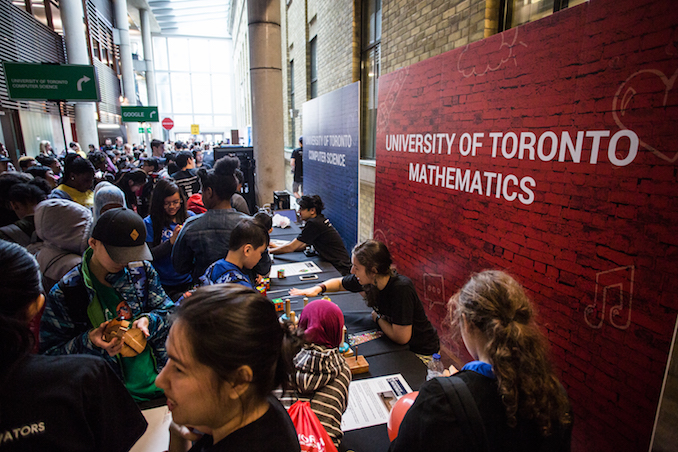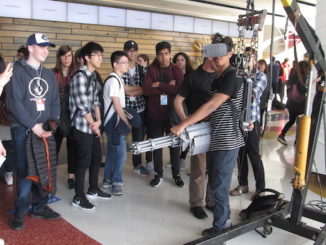A recent survey that was conducted by a Canadian not for profit called “STEM Camp” has revealed possible reasons why fewer girls are pursuing careers in Science, Technology, Engineering and Mathematics. The largest amount of participants in the survey listed the stereotype of traditional gender roles as the reason they do not pursue related careers at the same rates as boys.

363 households as well as users on social media were surveyed with one of the questions being:
What do you think are the biggest barriers for women considering STEM based careers? (select all that apply)
The results of the survey had traditional gender roles as answer #1 with 74.10%, girls interest in STEM as #2 with 44.63%, lack of peer support as #3 with 41.05%, lack of Canadian education system support as #4 with 38.02%. Lack of support from parents was selected 23.14% of the time and lack of career opportunities for women in STEM fields was chosen 25.62% of the time.
Interestingly enough, when parents were asked if a solid education in STEM subjects will be important to their child’s future, 99.17% answered yes but when asked if they would encourage their sons and daughters to pursue a career in a STEM-related field, only 68.78% and 72.53% respectively answered that they would.
Even though this sample size is small, and done in part through digital anonymity, STEM Camp CEO and Founder Kevin Cougler believes it is indicative of a trend in Canadian society. “When the Government of Canada attaches enough importance to STEM education by putting it in the last two national budgets, people take notice” says Cougler. “The challenge now will be to find ways to encourage our girls and boys to participate in as many STEM-based programs and activities as possible”.
The 2011 National Household Survey showed women accounted for 39% of university graduates aged 25 to 34 with a STEM degree (bachelor degree or higher), compared with 66% of university graduates in non-STEM programs.
Among those women who graduated with STEM degrees aged 25 to 34, 59% of them were in science and technology programs while only 23% of them graduated in engineering and 30% in mathematics and computer science programs.
Another point worth noting is that in 2011, of those women who graduated 25 to 34 with degrees in mathematics and computer science, 65% of them were immigrants. Female science and technology degree holders had a different story though. 70% of women with degrees in these fields were Canadian-born.
With the return of the long form census in 2021, more information will come to light and provide a great comparison over time to these figures. They will also show the impact of STEM programs, government investments and a growing support system for girls in STEM.




